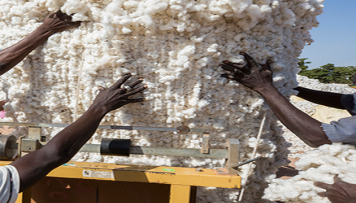Burkina Faso: Improving Water Management and Irrigation Project
Grant Funding|Activity Status: Active
-

Sector
-

Country
Region
-

Amount
$5.85 million -

Approval Date
February 28, 2018Closing Date
May 31, 2023 -

Donors
 Project website
World Bank project information
Project website
World Bank project information
Overview

Burkina Faso is the largest cotton producer in Sub-Saharan Africa, with cotton's being the country's second most important export commodity in terms of revenue generation - yet small-scale farmers have been wholly reliant on rainwater for cultivation, leaving harvests’ fate subject to the extremes of either drought or flooding from excess rainfall.
This four-year program (extended for a fifth year) -- developed in collaboration with IFC is part of the World Bank's Sahel Irrigation Initiative -- was GPOBA’s first project in Burkina Faso and in direct support of irrigation. The collaborative World Bank-IFC-GPOBA efforts seek to optimize the use of available resources to mitigate the negative effects of climate change on cotton sector productivity by training about 1,000 small-scale cotton farmers in land and water management, investing in small-scale irrigation systems, and facilitating farmers' access to credit.
Read: "Sowing Seeds of a Bright Future for Burkinabe Cotton Farmers"
Related: "Increasing Cotton Yields in Burkina Faso"

